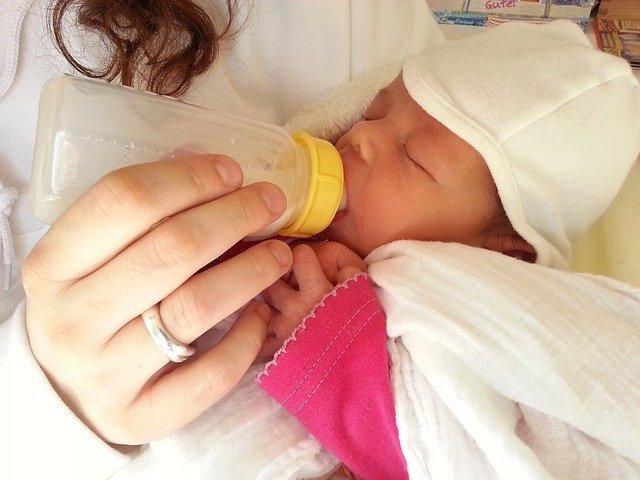The Best Way to Put Baby to Sleep

It is common to feel extremely tired in the early weeks of motherhood. Babies’s sleeping and waking patterns are unpredictable as they are trying to settle. Some newborn babies need as little as 12 hours sleep a day; other babies need up to 18 hours a day.
Your new baby can sleep in a bassinet, a cradle, a cot or a crib, either in your room or in his own room. If he sleeps in your room he will be close to you when he wakes up through the night, make it easier for you to pick him up, feed him, and put him back to bed easily. Wherever your baby sleeps, make sure he is snug and don’t have a heater at night. To reduce the risk of SIDS, put him to sleep on his back and don’t cover his head.
Each baby is different. There are babies who sleep very easily, and there are others whose parents have a tough time settling down and constantly struggle with their sleep pattern. Some newborns cry constantly at night and can make it difficult for mom and dad who have to work during the day and gets them stressed. They may need to find a balance by taking turns to look after the baby needs at night. If you continuously experience difficulties in making your baby sleep soundly at night, then you may be facing a baby sleep disorder.
How to Settle Baby to Sleep
Babies need to learn to sleep and parents can help them by using some settling techniques. From the first few weeks you can begin to develop a settling technique that calms and relaxes baby before he is put in his cot to go off to sleep in his own time.
First, you need to create good sleeping pattern and habit. You need to set a sleeping schedule and make sure it is consistent. Avoid being an over doting mom. If you pick him up every time he cries, he may end up getting used to the fact that someone is holding them at all times.
During these first few weeks, your baby will often go off to sleep while you are nursing/breastfeeding him. No need to worry, continue using settling technique so both you and your baby get used to it.
During the day, after the feed and burped, establish a quiet time or play (depending on baby’s age), watch for his signs of tiredness, such as grizzling, agitated movements, fist clenching, and facial contortions. If he shows these tired signs, you should wrap him snugly in a light wrap. Cuddle him for a while, talk to him soothingly, sing, rock, or pat him gently.
Close the blinds or curtains where your baby sleeps. When he is calm and relaxed but not yet asleep, put him in the crib/cot and tuck him in. Do not let him become overtired or he will have difficulties to settle. Establish this pattern and let your baby’s body recognize the signs of bedtime. If you do this every time, baby should go to sleep, wherever you are, he will learn to settle himself and go off to sleep on his own.
Sometimes if baby won’t settle you will need to try these soothing methods: rock the bassinet, stroke and pat him, play relaxing music, give him a warm bath before sleep time and gentle massage on his back. You can also walk around the house with him, feed him if you think he’s hungry and make sure he has a clean, dry nappy. .
If you know your baby is fed, warm, and dreary, put him to bed and leave him. If he is awake in his bed but not crying, leave him. Only use a dummy as as last resort so he will not become addicted to it. If your baby is colicky, you need to endure this for a couple of months or so before it finally settle down.
It is never easy to train baby to sleep. With patience and consistency, as months go by, you will be successful and see the results. If you are still having trouble settling your baby or if your baby is not sleeping well, contact your nurse or doctor.









Leave a Reply
Want to join the discussion?Feel free to contribute!